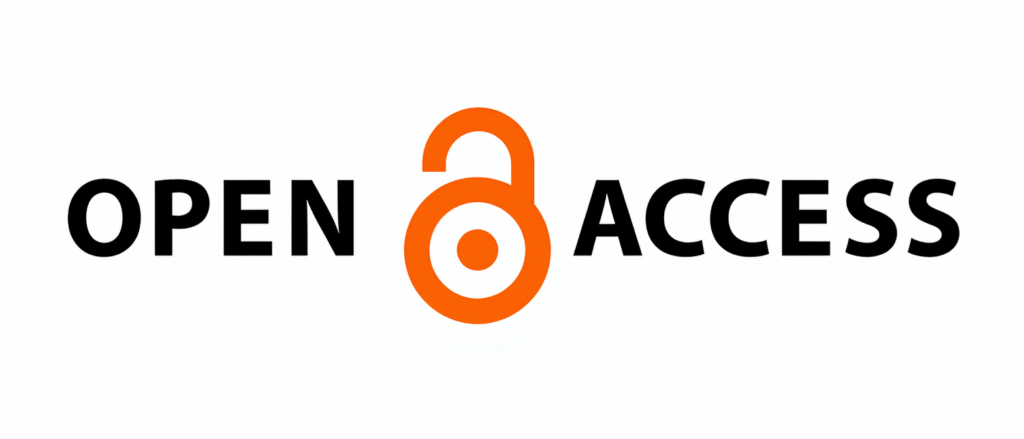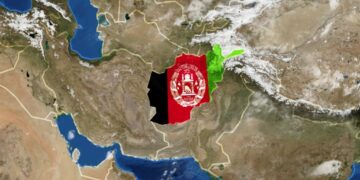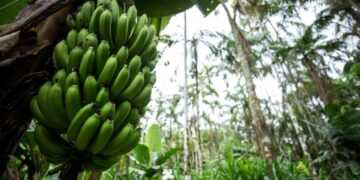PERSPECTIVE
Joel N. Christoph
European University Institute
This article is part of a special issue titled Bridging Power and Knowledge: Addressing Global Imbalances in Knowledge Systems for Sustainable Futures.
PLAIN-LANGUAGE SUMMARY
WATCH A SUMMARY OF THE ARTICLE
LISTEN TO THE PODCAST
Abstract
Global sustainability efforts increasingly acknowledge the need to integrate diverse knowledge systems, including indigenous, local, and community-based insights that have evolved over centuries. Yet, mainstream academic and policy frameworks often underutilize these perspectives, hindering the potential for comprehensive solutions to climate change, biodiversity loss, and social inequities. This perspective explores how structured cross-cultural collaboration can bridge power imbalances and enrich sustainability research and practice. Drawing from fieldwork experiences in regions such as Southern Africa and Southeast Asia, this perspective discusses barriers faced by local experts when engaging with international institutions, including resource inequities, language barriers, and systemic bias in peer review. This perspective argues that equitable partnerships require co-creation of research agendas, consensus on ethical data use, and rethinking how we define “rigor” in academic publishing. Additionally, digital platforms—while not a panacea—can facilitate more democratic forms of knowledge exchange when designed to accommodate limited connectivity and multilingual settings. This perspective also provides recommendations for policy reform, highlighting inclusive funding models, open-access publishing, and the adoption of broader evidence criteria by journals and granting agencies. By weaving together interdisciplinary research, success stories, and real-world case studies, this paper emphasizes that integrating multiple knowledge frameworks is not merely an ethical obligation, but a practical necessity for tackling today’s global environmental and social challenges. Ultimately, the call is to expand epistemic horizons, recognizing that collective resilience depends on weaving together the threads of all knowledge systems into a more equitable tapestry of sustainable solutions.

Keywords: cross-cultural collaboration, indigenous knowledge systems, sustainability research, knowledge integration, power imbalances, equitable partnerships
Introduction
Global sustainability dialogues increasingly emphasize integrating indigenous and local knowledge systems with mainstream scientific research. The IPCC (2023) highlights that certain community-led adaptation and mitigation strategies are often more effective and culturally appropriate than top-down solutions alone. Over the past two decades, local resource management practices have demonstrated resilience in biodiversity conservation, climate adaptation, and sustainable livelihoods (Kimmerer, 2013; Nadasdy, 1999). However, power imbalances often relegate these knowledge systems to secondary status in policy arenas and academic institutions. These asymmetries risk overlooking valuable insights and marginalizing communities most affected by climate change impacts.
This commentary explores pathways to achieve more equitable cross-cultural collaboration, drawing on practical experience and established literature. By examining how research agendas are formed, funded, and disseminated, I argue that bridging knowledge systems is both ethically imperative and strategically beneficial. Successful collaborations require recognizing local expertise, allocating resources equitably, and adopting research norms accommodating different epistemological frameworks (Smith, 1999). This analysis addresses key dimensions: structural barriers, methods for creating equitable research partnerships, the role of digital tools for amplifying local voices, and necessary institutional reforms. Ultimately, understanding how diverse knowledge systems inform sustainability, such as the integration of indigenous and academic knowledge systems shown in Figure 1, not only broadens the scientific perspective but also fosters solutions that are more inclusive, adaptive, and grounded in the lived realities of local stakeholders.

Figure 1: Integration of indigenous and academic knowledge systems in collaborative field research
THE NEED FOR CROSS-CULTURAL COLLABORATION
Contextualizing Global Sustainability Challenges
Contemporary environmental challenges—ranging from severe droughts to rising sea levels—cannot be effectively tackled through a single lens. Each region grapples with distinct socio-ecological contexts, cultural norms, and historical experiences that inform how communities perceive risks and adapt to changing conditions. Various societies have developed place-based strategies, such as seed-saving traditions or complex water-sharing agreements, which offer lessons for more generalized policy frameworks (UNESCO, 2018). Nonetheless, these local strategies often remain undocumented in mainstream literature or overlooked by policymakers due to cultural and linguistic barriers.
The Limits of a Single Epistemic Paradigm
Global North institutions, typically endowed with more resources, tend to dominate scholarly and policy-driven discourse on sustainability. This dynamic can produce a narrow focus that privileges scientific modeling and top-down policy solutions (IPCC, 2023). While scientific methods excel in quantifying impacts and forecasting global trends, they may lack the granularity needed to address localized environmental conditions. Cross-cultural collaboration thus enriches the knowledge base, integrating empirical data with context-specific insights that reflect generations of lived experience (Kimmerer, 2013).
Ethical Imperatives
Beyond practical effectiveness, ethical considerations underscore the importance of engaging local communities in decisions affecting their environments. Previous cases of resource development projects in Southeast Asia and Latin America have sparked tensions due to inadequate consultation with indigenous peoples, leading to both social conflict and ecological harm. By ensuring that local voices help shape research questions and approaches, we uphold principles of self-determination and equity, aligning with international frameworks like the United Nations Declaration on the Rights of Indigenous Peoples (UNDRIP). Such ethical alignment also fosters trust, a critical ingredient for sustained collaboration and the long-term success of sustainability initiatives.
STRUCTURAL BARRIERS AND POWER IMBALANCES
Resource Disparities
A primary obstacle to equitable collaboration is resource distribution. Local organizations and indigenous communities often lack funding and formal institutional support, leaving them reliant on external grants or sporadic project-based assistance (Lewis, 2021). Conversely, universities and NGOs based in wealthier countries can offer financial backing but may inadvertently create imbalanced power dynamics by controlling funding flows. These disparities can lead to situations where local partners are treated as informants rather than co-creators, relegated to data-gathering roles while strategic decisions remain centralized in Global North institutions.
Language and Communication Hurdles
The language used in mainstream academic circles, predominantly English, can sideline the voices of local experts. Translation of complex scientific terms into local languages—and vice versa—requires specialized skills and additional funding. Furthermore, cultural differences influence communication norms. For instance, open debates and direct criticism, common in Western academic settings, may be perceived as disrespectful in some cultures. These misalignments can hinder genuine knowledge exchange, create mistrust, and marginalize community members who cannot communicate easily in global academic languages.
Institutionalized Bias in Knowledge Validation
Peer review processes, editorial boards, and grant selection panels often prioritize frameworks and methodologies popularized in the Global North (Smith, 1999). This can invalidate research designs or findings that emerge from alternative epistemologies, such as oral histories or collective land-use practices. Meanwhile, local knowledge is sometimes dismissed as anecdotal, lacking “scientific rigor,” despite often being rooted in centuries of community observation and adaptation (Nadasdy, 1999). Such systemic bias hampers the visibility and credibility of non-Western research, curtailing the broader scientific community’s exposure to local innovations and ecological insights.
TOWARD EQUITABLE RESEARCH PARTNERSHIPS
Co-Creation of Research Agendas
One constructive approach is to involve local stakeholders from the very beginning of any research project. In practice, this means partnering to identify research objectives that resonate with the community’s priorities—be it water management, disease control, or livelihood diversification. Co-creation not only democratizes project design but also sets a precedent for sharing intellectual property and decision-making power. Workshops and focus-group discussions can help surface local concerns and emergent ideas, fostering a sense of ownership and mutual accountability.
Holistic Ethics Protocols
Existing ethics guidelines in Western academia often prove insufficient for cross-cultural contexts. For instance, “informed consent” typically implies signing formal documents in a language that might not be well understood locally. A more robust ethical framework would include oral consent options, inclusive data governance, and community-level review processes that reflect local values (Smith, 1999).
Additionally, reciprocity must be built into the project’s architecture, ensuring benefits return to the community, not just to the researchers or funding agencies.
Co-Creation of Research Agendas
One constructive approach is to involve local stakeholders from the very beginning of any research project. In practice, this means partnering to identify research objectives that resonate with the community’s priorities—be it water management, disease control, or livelihood diversification. Co-creation not only democratizes project design but also sets a precedent for sharing intellectual property and decision-making power. Workshops and focus-group discussions can help surface local concerns and emergent ideas, fostering a sense of ownership and mutual accountability.
Holistic Ethics Protocols
Existing ethics guidelines in Western academia often prove insufficient for cross-cultural contexts. For instance, “informed consent” typically implies signing formal documents in a language that might not be well understood locally. A more robust ethical framework would include oral consent options, inclusive data governance, and community-level review processes that reflect local values (Smith, 1999).
Additionally, reciprocity must be built into the project’s architecture, ensuring benefits return to the community, not just to the researchers or funding agencies.
IMPLEMENTING DIGITAL PLATFORMS FOR INCLUSIVITY
Opportunities in the Digital Realm
The digitization of research methods and dissemination channels creates new avenues for engagement. Mobile phone applications and community-driven data hubs can empower local contributors to share observations—from fish migration patterns to air quality measurements—in near real-time. These tools can function as collective intelligence platforms where local knowledge merges with specialized scientific analysis (UNESCO, 2018). When communities retain control over data curation and usage, digital platforms become instruments of empowerment rather than mere data-extraction tools.
Challenges and Limitations
Nevertheless, technology’s promise is constrained by infrastructure gaps and digital literacy. Many rural areas lack reliable internet connectivity, and the cost of smartphones or data plans can be prohibitive. Moreover, digital platforms may inadvertently replicate existing social inequalities—particularly if access is skewed toward younger or more affluent members of the community. Designing inclusive digital ecosystems thus requires robust needs assessments, local language support, and user-friendly interfaces that align with diverse cultural practices.
Case Example: Community Monitoring of Drought Patterns
In a semi-arid region of East Africa, local farmers collaborated with an international research team to record daily rainfall, humidity levels, and temperature using a mobile application. Over several months, the collected data was integrated with satellite imagery to create localized drought forecasts. While the initial adoption faced hurdles—limited smartphone availability and a learning curve for the app—community leaders facilitated training sessions in multiple local languages. This co-created database became a powerful advocacy tool, informing municipal water management policies and securing additional support from NGOs. The project demonstrates the potential synergy between technologically advanced methods and community-driven observational data, underscoring how both can complement each other for improved resilience.
OVERCOMING ACADEMIC BIAS AND REDEFINING RIGOR
Inclusive Peer Review Processes
Journals and academic institutions can adopt deliberate measures to diversify editorial boards and peer reviewer pools. By including scholars and practitioners from a variety of cultural and epistemic backgrounds, the peer review process becomes more inclusive. This shift would allow research grounded in oral histories, community-led research designs, or indigenous methodologies to receive fair scrutiny (Smith, 1999). Some journals now encourage multi-lingual abstracts and welcome supplementary materials—such as videos and community testimonials—that elucidate findings beyond the conventional scientific article format.
Decolonizing Research Methodologies
Calls to decolonize research underscore the need to question Western academic norms—be they strict authorship guidelines or the assumption that only particular quantitative metrics define “good science” (Kimmerer, 2013). Researchers can adopt mixed-methods approaches, weaving ethnographic observation, oral narratives, and structured surveys into a cohesive framework. By doing so, they elevate the status of local knowledge. Additionally, funders that recognize the value of local epistemologies help catalyze broader acceptance of alternative methodologies, ensuring that such research can attract critical investment and academic prestige.
Valuing Long-Term Relationships Over Extractive Outputs
A frequent critique of academic research in marginalized regions is the “parachute” model, where scholars collect data and depart, offering little in the way of tangible benefits or follow-through. Addressing this problem requires a commitment to building long-term relationships. Such commitment might entail multi-year collaborative projects, co-authorship that acknowledges local intellectual contributions, and open data policies that grant communities meaningful access to research findings. Emphasizing relational accountability over one-off publications can reshape academic incentives to align with community well-being.
Traditional Academic Model
Extract data, publish, depart with minimal community benefit
Collaborative Partnership Model
Co-create knowledge, share authorship, ensure long-term community benefits
POLICY-LEVEL INTERVENTIONS
This perspective analysis examines the integration of indigenous knowledge systems with scientific research through the lens of equitable partnerships and community-driven solutions. The methodology includes:
Inclusive Funding and Policy Reforms
Governments and intergovernmental bodies, such as the United Nations Framework Convention on Climate Change (UNFCCC), can incorporate local expertise into the design of climate adaptation programs. Mechanisms like the Green Climate Fund could introduce explicit guidelines requiring evidence of local consultation and leadership in project proposals. Policy mandates of this kind not only legitimize local voices but also stimulate deeper cross-sector partnerships, ensuring that large-scale funding translates into context-responsive initiatives.
Open Access and Data Sharing
Paywalled academic journals and proprietary data sets reinforce knowledge hierarchies. Shifting toward open-access models permits communities and smaller institutions to engage with up-to-date research without prohibitive costs. In turn, such democratization fosters reciprocal data sharing, with communities more likely to make their own data publicly available when they perceive genuine benefits. For instance, the open data movement, adopted by organizations like the Global Biodiversity Information Facility, has prompted local experts to share biodiversity records in exchange for updated habitat models from international scientists.
Balancing Intellectual Property and Community Rights
In certain contexts, local knowledge may be subject to intellectual property protections, especially if it leads to the development of commercial products (e.g., pharmaceuticals or agricultural technologies). Ensuring fair compensation and acknowledgment for local experts is crucial, as is establishing protocols to safeguard sensitive cultural information. Some policy frameworks suggest adopting community license agreements that specify how data may be used, ensuring that external partners cannot exploit cultural heritage or traditional remedies for profit without returning benefits to the source communities (Lewis, 2021).
FIELD INSIGHTS
Community-Led Agroforestry Initiatives
In parts of Southeast Asia, agroforestry systems—where multiple tree and crop species are cultivated together—have sustained rural livelihoods for centuries. When global environmental NGOs introduced reforestation campaigns primarily focused on single-species plantations, local farmers contested these plans as culturally inappropriate and ecologically vulnerable to pests. Subsequent dialogues revealed that integrating traditional agroforestry knowledge could enhance biodiversity and protect against crop failure, leading to more productive and resilient landscapes. The collaborative efforts eventually shaped a hybrid model that balanced global conservation goals with community-led experimentation, demonstrating the tangible gains of inclusive research and decision-making.
Participatory Fisheries Management
Along coastal areas of South America, local fishermen’s associations have long used rotational harvesting to preserve fish stocks. Scientific agencies initially dismissed these practices in favor of blanket quotas, resulting in tensions and conflicts. Over time, participatory mapping of fishing grounds and co-monitoring of catch rates validated local rotational systems. Once the data reached policymakers, they were compelled to revise national fishing regulations, blending indigenous wisdom with modern scientific oversight. This transformation process demonstrates how acknowledging local strategies can inform policy adjustments that benefit both communities and ecosystems (UNESCO, 2018).
Initial Conflict
Scientific agencies dismiss traditional rotational harvesting practices in favor of uniform quotas
Community Resistance
Local fishermen’s associations contest the new regulations based on generations of experience
Collaborative Research
Participatory mapping and co-monitoring validate the effectiveness of local systems
Policy Integration
Policymakers revise regulations to blend indigenous wisdom with scientific oversight
Mutual Benefit
Enhanced outcomes for both communities and ecosystem conservation
RECOMMENDATIONS FOR SUSTAINABLE INTEGRATION
Embedding Local Voices in Governance
Embedding local expertise in governance bodies (such as sustainability councils or advisory panels) ensures lasting inclusion. Rotational leadership, where local representatives alternate with outside experts, promotes balanced discussion and dismantles power hierarchies. These reforms ensure local knowledge informs strategic direction, preventing it from being relegated to a mere footnote or afterthought.
Leveraging Multi-Stakeholder Alliances
Effective cross-cultural partnerships require diverse actors: universities, community groups, agencies, enterprises, and governments. These alliances deliver robust, interdisciplinary solutions by pooling distinct resources and perspectives (IPCC, 2023). They necessitate coordination, transparent communication, and dispute resolution mechanisms. Setting clear roles, timelines, and metrics mitigates conflict and strengthens mutual accountability.
Reshaping Academic Incentive Structures
Academic incentive systems often emphasize publications, grants, and citations, which can encourage exploitative collaborations that fail to genuinely empower local stakeholders. Institutions must value team-based research and co-authorship involving community partners. Promotion and tenure committees should treat public engagement, policy influence, and community impact as equally valid achievements, transforming how universities approach research in the Global South.
Indigenous Peoples
Worldwide affected by climate change
Biodiversity Areas
Managed by indigenous communities
Global Biodiversity
Found on indigenous territories
Land Area
Traditionally occupied by indigenous peoples
Distinct Cultures
Indigenous groups globally
CONCLUSION
Bridging power imbalances in sustainability research necessitates a transformative shift in how academic institutions, governments, and local communities interact. Far from undermining scientific rigor, inclusive approaches enrich our collective understanding of complex ecological and social challenges. By recognizing the validity of diverse epistemologies, co-creating research agendas, and adopting equitable funding models, we can develop more holistic and effective solutions. Digital platforms offer new avenues for knowledge exchange but must be carefully implemented to avoid reinforcing existing inequalities. Policy-level reforms, including open-access mandates and rights-based frameworks for local expertise, are pivotal for sustaining these efforts. Ultimately, the synergy of global scientific insights with local and indigenous knowledge forms a richer tapestry of possible solutions—a tapestry strong enough to address urgent planetary challenges like climate change, biodiversity loss, and social injustices. Moving forward, it is incumbent upon all stakeholders to continue fostering dialogues that are open, respectful, and collaboratively forged. Only by doing so can we build a future where environmental stewardship and community resilience advance hand-in-hand.
Recognition
Acknowledge diverse knowledge systems as equally valid
Co-creation
Develop collaborative research agendas with local communities
Integration
Weave traditional and scientific knowledge into holistic solutions
Implementation
Transform institutional structures to support equitable partnerships
Resilience
Build sustainable futures through collaborative knowledge systems
ACKNOWLEDGEMENT
The author(s) gratefully acknowledge the support of the 2024 Humboldt Residency Programme, Alexander von Humboldt Foundation, in making this special issue Bridging power and knowledge: Addressing global imbalances in knowledge systems for sustainable futures possible.
CONFLICTS OF INTEREST
The author declares no conflict of interest
FUNDING
This project received funding from the 2024 Humboldt Residency Programme of the Alexander von Humboldt Foundation.
REFERENCES
IPCC. (2023). Climate Change 2023: Synthesis Report. Intergovernmental Panel on Climate Change. Retrieved from https://www.ipcc.ch/report/sixth-assessment-report-cycle/
Kimmerer, R. W. (2013). Braiding Sweetgrass: Indigenous Wisdom, Scientific Knowledge and the Teachings of Plants. Milkweed Editions.
Lewis, D. (2021). Non-Governmental Organizations, Management and Development (4th ed.). Routledge.
Nadasdy, P. (1999). The Politics of TEK: Power and the “Integration” of Knowledge. Arctic Anthropology, 36(1/2), 1–18.
Smith, L. T. (1999). Decolonizing Methodologies: Research and Indigenous Peoples. Zed Books.
UNESCO. (2018). Indigenous knowledge for climate change assessment and adaptation (D. Nakashima, I. Krupnik, & J. T. Rubis, Eds.; Local and Indigenous Knowledge Series, Vol. 2). UNESCO Publishing. https://unesdoc.unesco.org/ark:/48223/pf0000266082
ABOUT THE AUTHOR(S)

Joel N. Christoph
📧joel.christoph@eui.eu
Joel N. Christoph is a researcher at the European University Institute specializing in cross-cultural collaboration and knowledge systems integration for sustainability. His work focuses on bridging power imbalances between Global North academic institutions and local communities in the Global South. With extensive fieldwork experience in Southern Africa and Southeast Asia, he has published widely on indigenous knowledge systems, climate adaptation, and equitable research partnerships. His research emphasizes the practical necessity of integrating diverse epistemologies to address contemporary environmental and social challenges.
Received: January 20, 2025
Accepted: July 4, 2025
Published: October 31, 2025
Citation:
Christoph, J. N. (2025). Bridging Knowledge Systems for Inclusive Sustainability: A Cross-Cultural Perspective. SustainE, 3(1), 16–30. In A. Akinsemolu, A. Eimer, & S. Iqbal (Eds.), Bridging power and knowledge: Addressing global imbalances in knowledge systems for sustainable futures [Special issue]. https://doi.org/10.55366/suse.v3i1.2
Disclaimer: The opinions and statements expressed in this article are the author(s) sole responsibility and do not necessarily reflect the viewpoints of their affiliated organizations, the publisher, the hosted journal, the editors, or the reviewers. Furthermore, any product evaluated in this article or claims made by its manufacturer are not guaranteed or endorsed by the publisher.

Distributed under Creative Commons CC-BY 4.0











